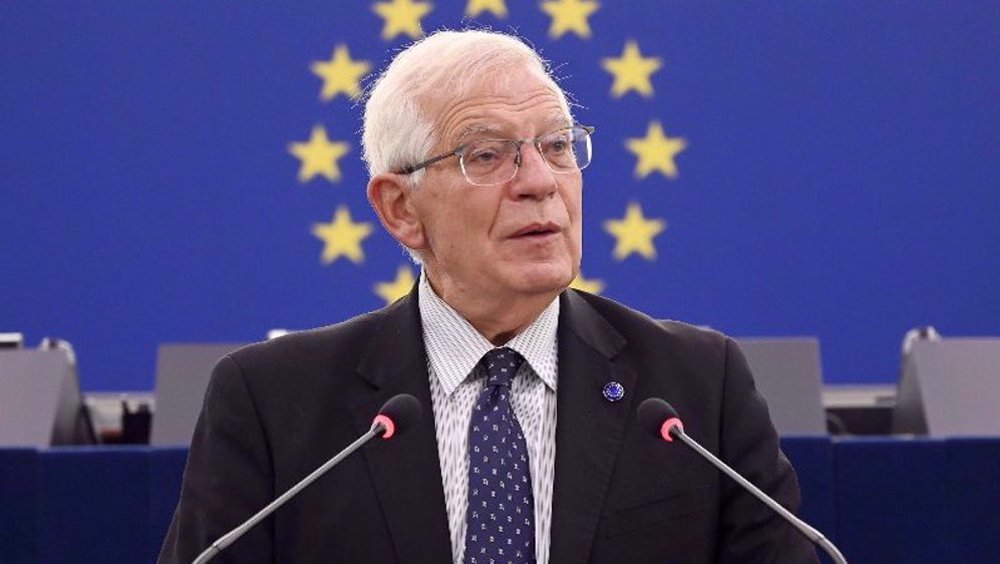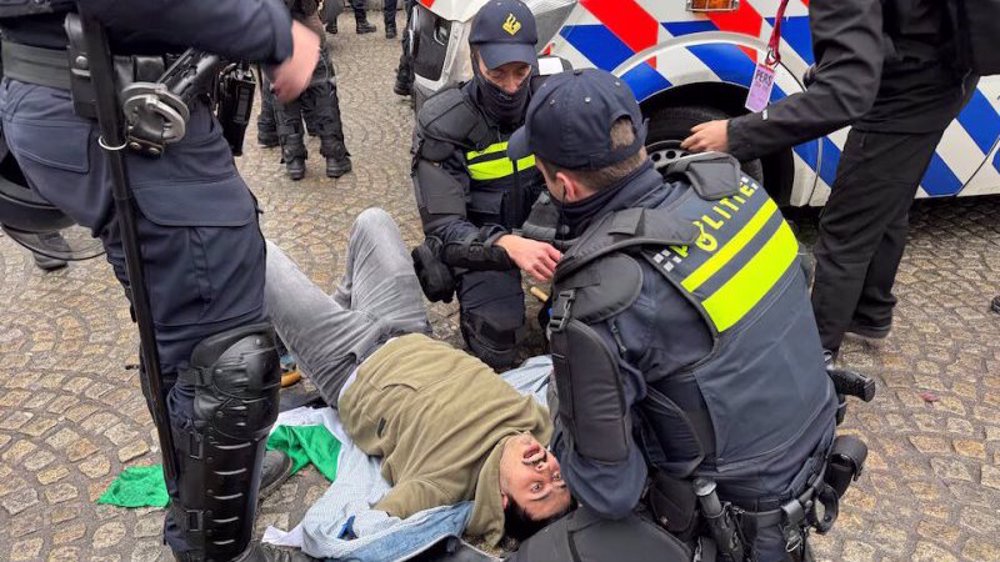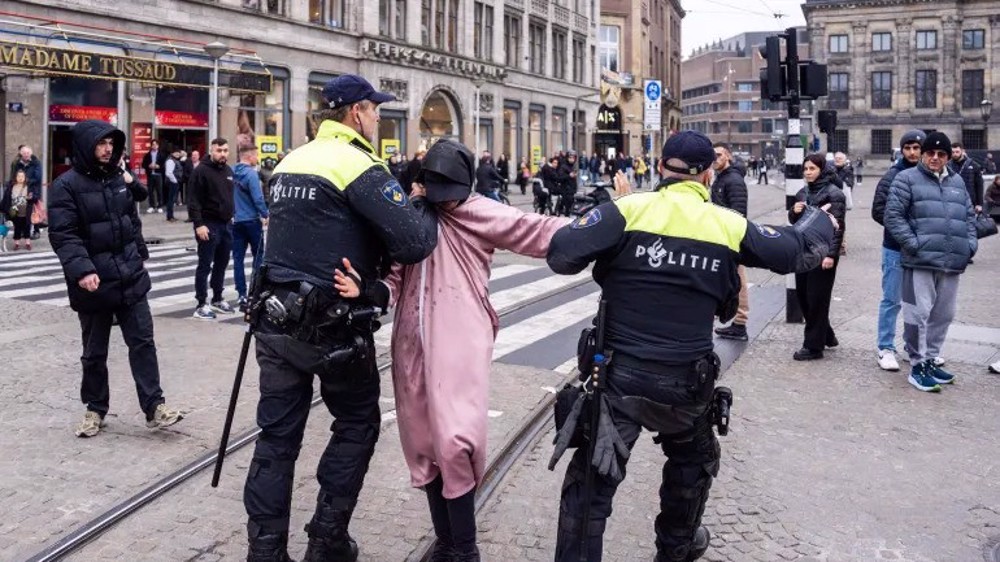Italians protest COVID-19 restrictions as Europe struggles to contain new surge
Italians have taken to the streets for the second consecutive night against new anti-coronavirus restrictions, as more countries move to tighten social distancing rules to fight surges in the pandemic across Europe.
Protests erupted, shortly after a new curfew was imposed in the capital Rome on Sunday. Around 200 masked far-right protesters, throwing flares and firecrackers, clashed with police.
Police arrested at least seven people during the rally, which was followed by clashes in the southern city of Naples on Friday night.
The protest came after the government of Prime Minister Giuseppe Conte ordered new measures to avoid a repeat of the blanket lockdown earlier in the year.
Conte pledged to speed up help for businesses suffering in the crisis but said the weeks ahead would be very difficult, saying, “We cannot lower our guard.”
According to a draft decree circulated on Saturday, public gyms and swimming pools may be closed and bars and restaurants told to shut from 6 p.m.
Authorities also urged people not to travel outside their home districts.
Still, a number of regions have imposed overnight curfews and the central government is expected to announce more measures soon.
According to health ministry data, 19,644 new infection cases and 151 deaths were recorded earlier.
Italy, one of the European countries worst hit by COVID-19, has recorded 7,864,811 cases of COVID-19, and 118, 534 deaths, according to Johns Hopkins University data.
Spain
In Spain, the government was preparing to declare a new state of health emergency on Sunday to allow a curfew to be imposed in some parts of the country.
On Saturday evening, governments in at least nine regions had asked the central government in Madrid to declare a state of emergency or voiced their support for the move.
This will be the second state of emergency declared this year in Spain after one was declared in March to contain the first wave of the coronavirus. It lasted until June.
Two days earlier, Spain had become the first European Union country and the sixth in the world to exceed one million cases of COVID-19, with Prime Minister Pedro Sanchez admitting on Friday that the real number of people infected with the coronavirus in Spain was estimated to be over three million.
Spain has so far recorded nearly 35,000 deaths since the start of the pandemic.
Belgium
Brussels is also planning more restrictions from Monday, according to the government, which said sport and cultural facilities must close, as the virus infections continued to surge to record highs, across Belgium.
A curfew is also imposed from 10 p.m. to 6 a.m. and will last until November 19.
Masks will once again become mandatory in public spaces, shops must shut at 8 p.m., and public gatherings of more than four people are banned.
“The situation is very serious, it cannot remain this way,” said Rudi Vervoort, premier of the Brussels region.
The country of 11 million people has had 1,119 new COVID-19 infections per 100,000 residents over the past week.
With a total number of 305,409 cases and 10,658 deaths, Belgium has one of the highest per capita fatality rates in the world.
France
In France, hospitals cannot avoid the impact of the rapidly spreading coronavirus epidemic, the health minister warned Saturday.
The total number of confirmed infections passed one million across the nation on Friday.
“The serious cases arriving in our hospitals today are the result of infections that happened 15 days ago,” said Health Minister Olivier Veran.
“Taking into account the spread of the epidemic today, we know that whatever we do, in 15 days we will see the consequences of these infections,” he added.
Authorities extended an overnight curfew in Paris and eight other major cities to large parts of rural France on Friday.
The lockdown, between 9 p.m. and 6 a.m., will now cover 46 million people, or more than two thirds of the population, and will remain in place for six weeks.
The total number of cases has reached 1,084,659, in France, along with 34,673 virus-related deaths.
Europe is now the second after Latin America to surpass 250,000 deaths on Saturday, according to a Reuters tally.
The continent, which reported 200,000 daily infections for the first time on Thursday, accounts for nearly 19% of global deaths and about 22% of global cases, the tally shows.
The UK, Italy, France, Russia, Belgium and Spain account for nearly two-thirds of about 250,000 deaths registered until now from a total of about 8 million cases across Europe.
Britain leads Europe’s death toll with about 45,000 fatalities.
Prime Minister Boris Johnson said on Thursday Britain cannot rely on a vaccine and will need to use other measures to slow the pandemic.
Russia is also reporting 250 deaths per day, according to last seven-days daily reported average deaths.
It has the continent’s highest toll, followed by Britain and France with about 143 deaths per day, each.
Russian has in total, recorded 1,503,652 confirmed cases of COVID-19 and 25,875 related deaths.
Meanwhile, the World Health Organization (WHO) warned of an "exponential" rise in infections threatening health systems' ability to cope with a second wave of the pandemic.
The global coronavirus tally now stands at about 42.605,540 cases and 1.150,241 deaths.
The United States alone has had 8,576,838 cases of infection and 224,906 fatalities.
VIDEO | 85% of Yemeni displaced people face daily hunger crisis
US House passes bill targeting charities and pro-Palestine groups
VIDEO | Supporting Gaza genocide
Hezbollah attacks Israeli forces after Lebanese homes blown up
World leaders, states hail ICC arrest warrants for Netanyahu, Gallant
MP: US accountable for possible Israeli 'foolishness' to attack Iraq
VIDEO | Israeli policies strangle Palestinian agriculture, economy
Iran's president offers condolences to Pakistan over terrorist attack















 This makes it easy to access the Press TV website
This makes it easy to access the Press TV website